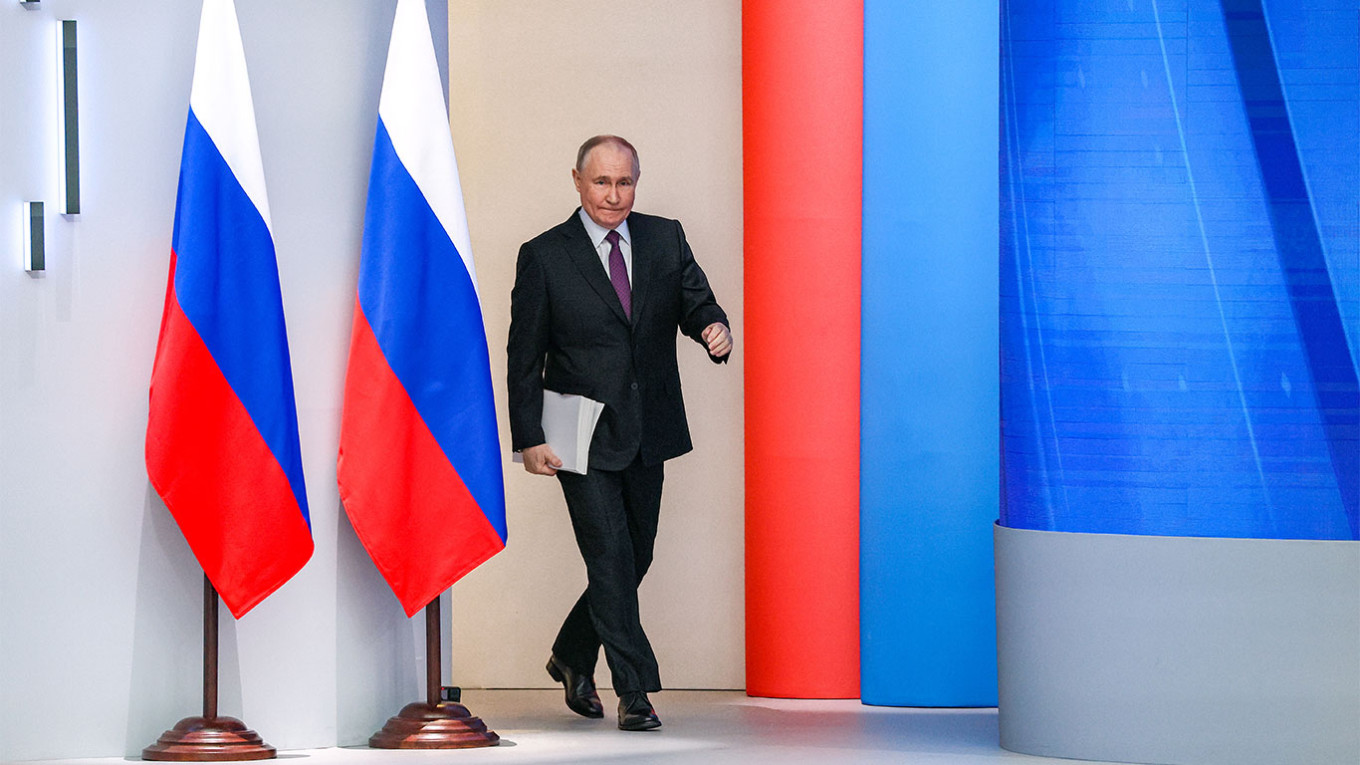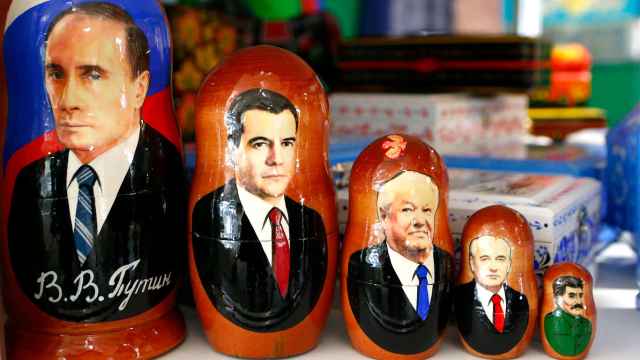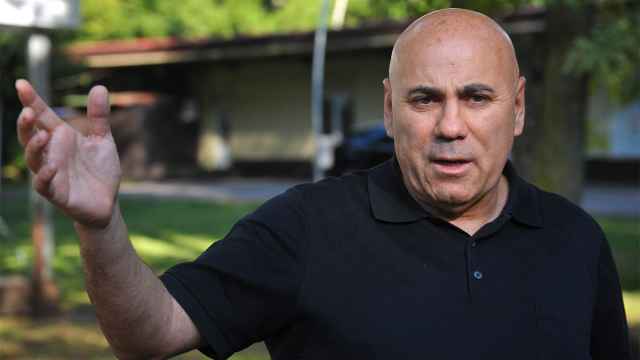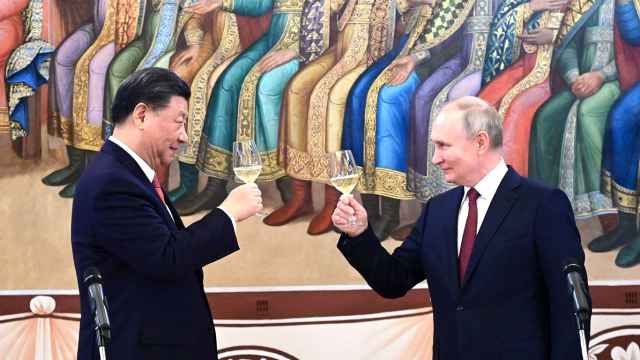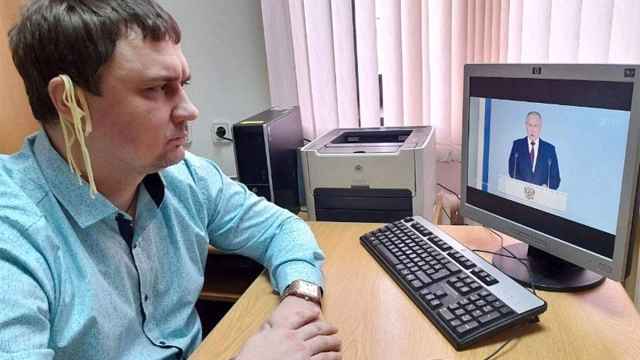President Vladimir Putin delivered his annual State of the Nation address on Thursday, using the speech to send a message of defiance to the West, which he accused of instigating the war in Ukraine, but also to highlight state social support programs and the Russian economy's resilience against Western sanctions.
“The West miscalculated and ran into the firm position and determination of our multinational people,” Putin told an audience of government officials, members of parliament and civil society figures who gathered at Moscow's Gostiny Dvor.
“Russia won’t let anyone interfere in its internal affairs,” he added.
While constitutionally mandated, the State of the Nation address — which comes days after the second anniversary of Moscow’s full-scale invasion of Ukraine and weeks before Putin seeks re-election next month — was as much of a pitch for Putin's leadership as it was a formality.
Putin accused the West of forcing Russia into an arms race and said Moscow’s “strategic nuclear forces are in a state of full readiness for use,” though he warned that a global nuclear conflict would “destroy civilization.”
“They [in the West] should finally understand — and I just told them — that we too have weapons that can destroy targets on their territories,” he said.
“We remember the fate of those who sent their contingents to the territory of our country,” Putin continued, alluding to Nazi Germany's attack on the Soviet Union. “Now the consequences for the potential interventionists will be much more tragic.”
Moving to domestic policies, Putin announced a slew of new national projects, including those providing state financial support to Russian families and youth as well as job skills training in the high-tech sector.
He also boasted that Russia’s economy grew at a rate higher than the global average in 2023, outpacing that of the United States and other G7 countries despite facing a wide array of sanctions and being cut off from Western markets.
Similarly, Putin used his State of the Nation address to set out Russia’s production goals for 2030, calling on domestic manufacturers to ramp up production of high-tech goods by 150%. Among other priority areas for boosting domestic manufacturing, he listed consumer products, medicine and automobiles.
Putin urged companies to keep their assets in the country by promising “minimal” and “risk-oriented” business inspections starting in 2025, while also calling for an amnesty for small businesses accused of tax evasion.
“Russian businesses should not move their funds abroad where one can lose everything.”
He then went on to list several other state support programs for everything from satellites that provide high-speed internet to artificial intelligence and big data startups, stressing that the government was taking all the necessary steps to develop critical technologies at home amid Russia's isolation from Western markets.
But by the end of his address, Putin made clear that he sees Russia's military victory over Ukraine as the true measure of the country's success and the key to its future.
“Fulfilling all of these plans directly depends on the servicemen who are currently fighting at the front, on the courage and determination of our comrades who sacrifice themselves for us, for the sake of the Motherland,” the Russian leader said.
“I believe in our victories and success and in the future of Russia.”
A Message from The Moscow Times:
Dear readers,
We are facing unprecedented challenges. Russia's Prosecutor General's Office has designated The Moscow Times as an "undesirable" organization, criminalizing our work and putting our staff at risk of prosecution. This follows our earlier unjust labeling as a "foreign agent."
These actions are direct attempts to silence independent journalism in Russia. The authorities claim our work "discredits the decisions of the Russian leadership." We see things differently: we strive to provide accurate, unbiased reporting on Russia.
We, the journalists of The Moscow Times, refuse to be silenced. But to continue our work, we need your help.
Your support, no matter how small, makes a world of difference. If you can, please support us monthly starting from just $2. It's quick to set up, and every contribution makes a significant impact.
By supporting The Moscow Times, you're defending open, independent journalism in the face of repression. Thank you for standing with us.
Remind me later.


